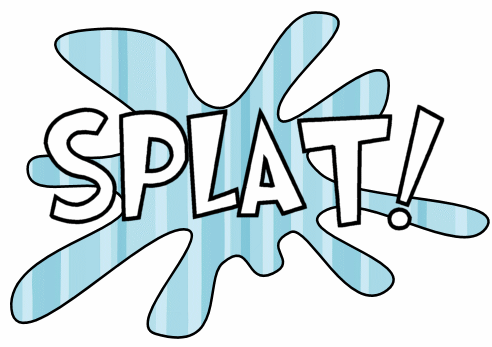
(click
above to see a bio)
Pansy Kidd Middle School
300 N. Walters
Poteau, OK 74953
School Number (918) 647-7741
Email: hallw@pkms.poteau.k12.ok.us

Figurative Language Study Guide
|
|
(click
above to see a bio) |

|
Welcome to Ms. Hall's Online Study Guide for the unit on Figurative Language! This unit is targeted towards 6th through 8th - Reading and English (Language Arts) classes.
Objectives:
Define figurative language terms (e.g., simile, metaphor,
etc.)

Recognize examples of figurative language when used in literature
Correlation to PASS Objectives:
Standard 4:3 a. Identify and explain the use of figurative language, in literary works to convey mood, images, and meaning, including metaphor, personification, and simile
Standard 4:3 b. Identify and explain the use of sound devices in literary works to convey mood, images, and meaning, including alliteration, onomatopoeia, and rhyme
Purpose: The purpose of this lesson is to allow students to read, explore, learn, and enjoy figurative language in various readings and in their own expressive writings. The lessons will introduce and exemplify various types of figurative language. The students will also be given the opportunity to prove their knowledge of these concepts.
Assignments: (Click on any links below to locate the applicable information)
|
Date Assigned |
Lesson/Assignment
|
Due Date |
|
Monday April 21, 2008 |
Students will be introduced to the definition of figurative language. Students will also be given examples of figurative language. |
NO HOMEWORK! |
|
Tuesday April 22, 2008 |
Students will be introduced to the definition of
Simile. Students will complete the Similes
Matching Game as a guided practice on the projector. Students will
then complete the Simile Worksheet
& Simile Crossword Puzzle
for homework. |
Wednesday April 23, 2008 |
|
Wednesday April 23, 2008 |
Students will be introduced to the definition of
Metaphor. The teacher will show Sample
Metaphor Poems
on the projector. Students will complete the Metaphors Worksheet in class. Students will need to complete the “Create
Your Own Metaphors” Worksheet for homework. |
Thursday April 24, 2008 -Metaphors
Worksheet (completed in class) |
|
Thursday April 24, 2008 |
Students will be introduced to the definition of
Alliteration. Students will play the “I
am Going on a Trip” Alliteration Game as a guided practice during
class. Students will then complete the “People
Alliteration” Worksheet independently in class. |
NO HOMEWORK! |
|
Friday April 25, 2008 |
Students will be introduced to the definition of
Onomatopoeia. Students will view the Onomatopoeia
Examples on the projector. Students will complete the Onomatopoeia
Worksheet in class. Students will need to complete the “Identifying
Onomatopoeias” Worksheet at home. |
Monday April 28, 2008 -Onomatopoeia
Worksheet (completed in class) |
|
Monday April 28, 2008 |
Students will be introduced to the definition of
Idiom. Students will view the various Definitions
& Examples of Idioms (A-Z). Students will complete the Idiom
Story & Quiz
during class time. Students will take the “Meanings
of Idioms” Worksheet home for homework. |
Tuesday April 29, 2008 |
|
Tuesday April 29, 2008 |
Students will be introduced to the definition of
Hyperbole. Students will view the Humorous
Hyperbole Examples
on the projector. Students will then complete the “Illustrate
a Hyperbole” Worksheet. If students do not finish in class, it will
be homework. |
Wednesday April 30, 2008 |
|
Wednesday April 30, 2008 |
Students will be introduced to the definition of
Personification. Students will complete the Personification Worksheet during class. Students will be given the
option to complete the “Illustrate
& Publish Personification Poems” for 50 bonus points. This
project is to be completed outside of class. |
NO HOMEWORK! Bonus Project: Due Monday May 5, 2008 |
|
Thursday May 1, 2008 |
Students will look at the Review of Poetry Terms on the WEB for a complete review of the
Figurative Language Unit. Students will need to study at home for the End-of-Unit
Quiz. |
Study for
Figurative Language Quiz! |
|
Friday May 2, 2008 |
Students will take the “Common Poetry Terms” Quiz for a grade in class. |
NO HOMEWORK! |
The picture above shows 2 examples of idioms. |

The picture above is an example of onomatopoeia (the use of a word to imitate or describe a natural sound or the sound made by an object or an action).
|